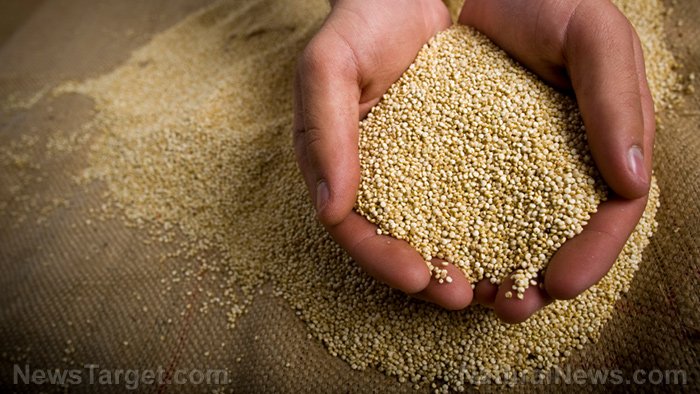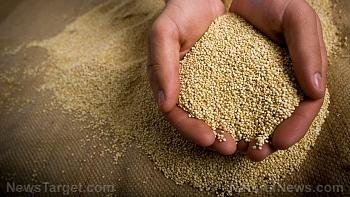Brewer’s spent grain from the beer-brewing process can be processed into cereal, flour or meat replacements, suggest researchers
(Natural News) Swedish researchers are exploring new ways to turn brewers’ spent grain into food products like flour and cereal. These beer production leftovers are often discarded or used as animal feed and a recent initiative led by Chalmers University of Technology in Sweden is seeking to change that by upcycling the grains into high-value products.
Spent grains for high-value food products
According to a 2016 report from Gibbs Laboratory, part of the Oregon Health & Science University, around six billion pounds of brewers’ spent grains are produced in the United States every year. Much of that spent grain gets sent to landfills.
Spent grains are by-products of brewing beer and are commonly comprised of wheat, corn, rice, sorghum, millet and barley. Though wet and drained of sugars, they’re still rich in fiber and protein, as well as nutrients like folic acid, biotin and riboflavin.
“Small breweries are paying for someone to come and remove the spent grain. They would like it to be used as animal feed, but it’s tricky and a logistical challenge,†said Joshua Mayers of Chalmer’s Department of Biology and Biological Engineering, who’s part of the research team.
Selling the grains for animal feed or biofuel is also the practice of big breweries, according to team member Max Bjorkman of Chalmers Industriteknik, the organization that heads the research. “This solution benefits both farmers and breweries, who then don’t pay for disposal,†Bjorkman added.
But a few small-scale projects have shown that the spent grains can also be used to produce high-value products like dough and may even have many other potential uses. These leftovers can be used as an ingredient in breakfast cereals, replace potato and corn starch, be puffed into cheese products and even become a replacement for meat and soy products.
“The raw material might not have the same taste, but the nutrition value is certainly higher as it contains less carbohydrates and more protein and fibers,†Mayers said.
Overcoming problems with the handling of spent grains
The researchers have been mapping out the lifecycle of the spent grain, which is important for unlocking a new way of handling these leftovers and engaging the breweries’ interest in the research. The spent grains spoil quickly, which means the logistics and handling of the grains are a challenge. The team is also trying to understand how the spent grains may affect the product’s texture and taste.
“We know that spent grain could be used, but there’s a lot of questions to answer. There are challenges but we also know that there’s a big interest in solving this,†Mayers said.
The team highlighted the importance of the breweries’ investment and said that in the end, beer producers will be the ones to benefit by saving money on disposal and profiting from a new product.
Comments
There are 0 comments on this post






